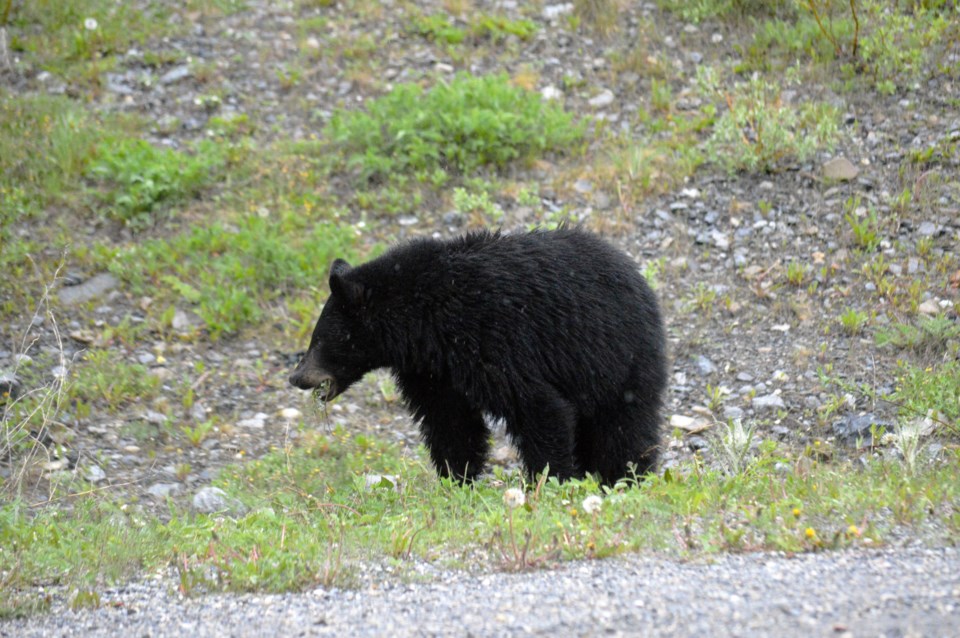BOW VALLEY — Opposition has flared regarding many of the changes made to Alberta’s provincial hunting regulations.
Among the changes implemented on Aug.1 are the legalization of using dogs to hunt black bears, expanded bait allowances, removal of mandatory reporting for several species, authorization of using small-caliber ammunition on big game and lowering the legal hunting age to 10 years old.
Maggie Spizzirri, executive director of the Exposed Wildlife Conservancy, said that despite significant implications for wildlife welfare, ecosystem health and public safety, there is no publicly released evidence that conservation organizations, scientific experts, Indigenous communities and the general public were sufficiently involved in weighing in before the changes were implemented.
“These aren’t just minor regulatory tweaks. Combined with all of the other wildlife regulation amendments in the past two years under this ministry, these changes amount to a dismantling of ethical safeguards that exist to protect wildlife, ecological balance and public trust,” she said in a media release.
“This isn’t just a conservation issue, it’s a public issue. Whether you're a hunter, a parent, a scientist or simply someone who values ethical governance, you should be deeply concerned.”
Use of off-leash dogs for bear hunting
Spizzirri said animal welfare experts condemn the use of dogs in bear hunting due to high stress levels, risk of injury, increased risk of orphaning of cubs, increased human-bear conflict, disruption to ecosystem balance and the increased risk of grizzly bear mortality.
The Alberta Wilderness Association has also weighed in on the subject, releasing a statement outlining its concerns about the changes.
“Off-leash dogs can pose a risk to non-target wildlife, including species-at-risk, by damaging nests, dens and habitat or causing stress,” said the statement.
“Even well-trained dogs can startle and chase wildlife that is not meant to be hunted. Additionally, the use of hunting dogs may interfere with other hunters who prefer to hunt without dogs.”
Ruiping Luo, a conservation specialist with the AWA, expressed concerns that hunting dogs may unintentionally cause conflict with grizzly bears, which may become dangerous for the bear, the hunter and the dog.
“There is a high risk that they will go after grizzly bears, which might not end well for the dog or the bear or the hunter. It is hard to say what the outcome of that would be, but potentially, if the grizzly bear gets aggressive if it is being chased or if it is provoked, that grizzly could be labelled as a problem there,” Luo said.
“Aside from the black bears that they are targeting, they might be going after birds, they might be going after small mammals, they might be going after ungulates like deer and caribou in the area, and they might be causing harm to some of the species at risk.”
Luo explained bears labelled as problem animals would be treated as such, which in many cases would lead to it being killed for human safety.
Banff-Kananaskis MLA, Sarah Elmeligi, who is a wildlife biologist, added that dogs are not allowed to be off leash in wildland provincial parks specifically to lower the risk of disturbance to wildlife, as well as to lower the risk of human-wildlife conflict.
“The conflict risk with a dog off leash is so much higher, especially with bears and potentially cougars, than to have a leashed dog,” she said.
“It is really interesting to me that nobody else is allowed to have a dog off leash in some parts of the province unless you are there to kill a black bear or a cougar.”
Changes not based on science, lack of consultation
Luo said many of the changes that have been made do not seem to follow scientific evidence, are not based on public opinion, and have been implemented very quietly.
"This change, we found out about it because it was in the Alberta Guide to Hunting Regulations. One of our members noticed it. It was not announced, the government did not make any attempt to inform the public of these changes," she said.
"The major [change] that came across was, we are concerned that they are now allowing off-leash hunting dogs to go after black bears. We have expressed concerns previously with just using off-leash hunting dogs because even with well-trained animals, there is always that risk that they will chase after non-target animals."
In addition to fears of causing direct harm to unintended targets, Luo added indirect effects may include increased stress levels among local species, changes in behaviours and damage to local habitat.
Extended concerns also include notation in the regulations that increase the ranges where black bears are allowed to be hunted.
The justification is that black bears hunt and kill caribou; however, many of the regions indicated in the regulations are notably outside where caribou are expected to be found.
Calls for release of information
Spizzirri and Luo both said their respective organizations were not consulted prior to the regulatory changes, and call for the release of information on which bodies were spoken to.
“It’s disappointing to see the Alberta government continue to enact wildlife regulation changes that fly in the face of modern science, ethics and societal values,” said John Marriott, co-founder of Exposed Wildlife Conservancy.
“We need to demand accountability and transparency from this government to ensure that our wildlife management policies truly are reflective of current scientific and traditional Indigenous knowledge.”
In a statement, Minister of Forestry and Parks, Todd Loewen, said the new rules “reflect current scientific knowledge and align with best practices across Canada.”
The Exposed Wildlife Conservancy has called on the provincial government to release all documentation related to the consultation and decision-making process behind the 2025 hunting regulation changes.
“No one that we work with has been contacted. As a conservation organization, we were not involved in any of these decisions, and a lot of people I know who might have an interest in these changes were not consulted. So, who was consulted and why?” said Luo.




